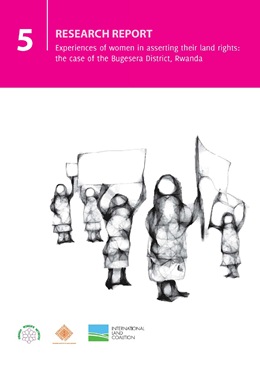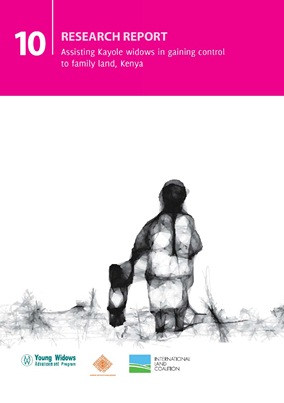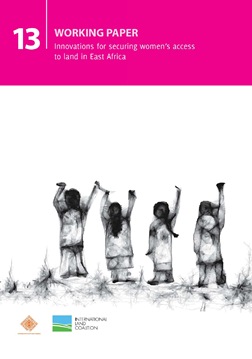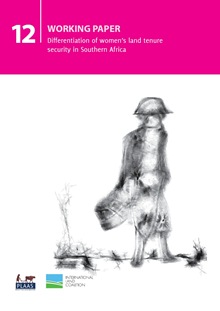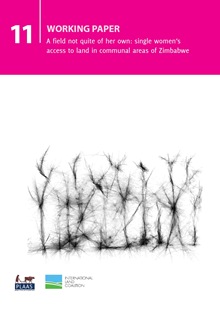Location
The International Land Coalition (ILC) is a coalition of civil society and intergovernmental organizations promoting secure and equitable access to and control over land for poor women and men through advocacy, dialogue and capacity building.
Resources
Displaying 211 - 215 of 261Experiences of women in asserting their land rights: the case of the Bugesera District, Rwanda
Poor women in developing countries rely on land as source of livelihood. Increasing pressure on land — brought on by globalisation pressures, increased population and privatisation — undermines women’s land tenure security. The comparison of women’s land access is predominantly measured against that of men, and this has been the basis for formulating policy aimed at increasing women’s land tenure security.
Assisting Kayole widows in gaining control to family land, Kenya
Access to and control over land is crucial for family well-being and food security in Kenya. Most land in Kenya is acquired through inheritance of family ancestral land, which is mostly passed down the male line.
Innovations for securing women s access to land in Eastern Africa
The importance of land to poor people’s livelihoods cannot be over emphasized. Land provides the foundation upon which people construct and maintain livelihoods. Consequently, secure access to land is a prerequisite for securing livelihoods. Women are the majority of the poor as they have limited access to social and economic resources. This increases their dependence on basic resources like land. The majority of women rely on a land based livelihood mainly as subsistence agricultural producers.
Differentiation of Women's Land Tenure Security in Southern Africa
Poor women in developing countries rely on land as source of livelihood. Increasing pressure on land — brought on by globalisation pressures, increased population and privatisation — undermines women’s land tenure security. The comparison of women’s land access is predominantly measured against that of men, and this has been the basis for formulating policy aimed at increasing women’s land tenure security. However, this dichotomy reduces women to a homogenous group which experiences tenure security in an identical manner, so the dichotomy masks several differences which exist among women.
A field not quite of her own. Single women's access to land in communal areas of Zimbabwe
Dominant arguments about women’s land access stress the vulnerability of single women’s land rights in customary tenure areas. The vulnerability is based on long-held assumptions about customary tenure land governance, land use and gender relations. The paper seeks to contribute to the debate on customary tenure area land access, landlessness and understanding customary tenure evolution. Although single women have increasingly insecure tenure on customary tenure lands, in those systems spaces exist for single women to negotiate access to land.








